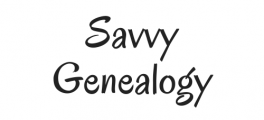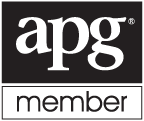RootsTech and Becoming a Professional Genealogist

Hello everyone! How’s it going this week? It’s Roots Tech week! What’s that you say? It’s a genealogy convention held in Salt Lake City, UT that covers everything genealogy. They have classes on just about everything, DNA, photos, preservation, tech, regional research, maps, social media, latest news and trends, etc. They also have an exhibition hall where hundreds of businesses sell their services or products. People network with each other the entire weekend. They have keynote speakers such as Henry Louis Gates, Jr. from the TV show Finding Your Roots. This year they have the actress Patricia Heaton from Everybody Loves Raymond and other TV shows. They also bring other famous and not so famous people in to speak and connect with others. It’s an amazing weekend and they do it every year.
So check out the videos that they will make of some of the classes for this year and be sure to sign up for RootsTech for next year. It’s usually held the last weekend of February and the first of March.
One of the classes that was held at RootsTech that they videoed is about how to become a Professional Genealogist. So that’s what I’m going to talk about today. It was amazing to see that two of the three presenters for this class were my professors at BYU-Idaho for my Family History Research major. It was really nice to see them again and to remember the good and hard times I had trying to learn how to research better.
Getting Ready to Leap by Valerie Elkins
Valerie was the presenter of how to go from a family history hobbyist to a professional genealogist. It takes a lot of self-evaluation, education, and determination. She explains that there are pros and cons to becoming a professional. You trade having all of the time in the world to lazily find your family or go on diversions to having a very strict period to research a specific topic as a professional.
She talks about getting education through many ways. She lists genealogy institutes such as Salt Lake Institute of Genealogy, Genealogy Research Institute of Pittsburgh, Genealogical Institute on National Records, and Institute of Genealogical and Historical Research. These are just a few of the educational options out there if you’re serious about becoming a professional. She also lists many books that need to be in your library to further your education as you help others with their families.
For my educational journey, I decided to complete the Family History Research course at BYU-Idaho. Currently, it’s an Associates Degree. BYU in Provo, UT has a Bachelor’s Degree for Family History Research if you want to go that route. I then am continuing my education to become an accredited professional genealogist. In addition, experience with other people’s family is an education in itself. Basically, you need to do all you can before, during, and after you become a professional genealogist to keep learning. Once you stop learning, then you stop being a professional.
Genealogy as a Business by Luana Darby
Luana was one of my professors at BYU-Idaho. She taught me a lot about how to start my own business during that class. Her presentation during RootsTech was no different. I loved it!
She talked about knowing your strengths and weaknesses about what you want to do in your business. She focused mainly on building your own business or working for a research company. She talked about do you like to write reports or just research, teach others, preserve photos and other artifacts, work with others or by yourself, work with tech or not, etc. All of these questions will help you narrow what you want for your business.
She also talked about how to start your business. This information is key for any business. Therefore, you want to know your audience, have a business plan, and answer important questions about your business. Do you want to do it part-time or full-time? Do you want to run it in your home? Where will your startup money come from?
In addition, she talked about how do I find and keep clients. This one can be varied in its answers. She suggests networking, starting with family and friends, and volunteering. All of these can lead to others who need help.
Side Note-Personal Story
In my business, I find all of these ways help me be a better businessperson. I find that lecturing at my local library helps me find new people for my business, but it also helps me feel excited about giving back to the community. I see the light that comes on in my audience’s eyes and I know they have been inspired.
These presentations also help me be a better presenter. The audience asks good thoughtful questions that sometimes I don’t know the answer to. It makes me curious to find the answer so that I will be prepared the next time that question comes up.
I used to be scared about doing presentations because what if I didn’t know how to answer someone’s question. What if I looked dumb in front of the whole class? Then I attended a presentation put on by a professional genealogist who I admire. He said matter-of-factly, that there will always be someone in the audience who knows more about that topic then you. The way he said that made me rethink my fears and eventually make peace with that aspect of public speaking.
So let’s talk about the third presenter…
Which Credential? by Anne Teerlink
Anne was my other professor at BYU-Idaho. She taught me a lot about how to organize and manage my research more efficiently like a professional genealogist would. In this presentation she taught about becoming a credentialed professional genealogist. This just means that the genealogist adheres to a certain ethical and professional standard put on by that organization.
She talked about you shouldn’t rush into this decision before you’re prepared. It can turn into a very expensive mistake. The credentialing companies, ICAPGEN and BCG, offer study groups and sample case studies of what they expect you to accomplish when you apply for your credentials. Basically, she says to look on their websites and adjust your efforts where you can to align with their standards before you attempt to apply for the credentials. Don’t make the mistake of thinking that just because you’ve been doing genealogy for over twenty years it makes you ready to get your credentials.
Summary
Aren’t they great? This is just a summary of what they presented at RootsTech. I challenge you to go to the RootsTech website and look up this class. It’s called “Making the Leap-Becoming a Professional Genealogist” and it will only be available on their website for a limited time. I have provided the link as long as it’s active, then that’s it folks. The class comes with a handout that you can download. Anyway, RootsTech is awesome and totally worth the money! Plan on going next year and have lots of genealogy fun!
In addition, here are links to my other posts on what does a genealogist do and why hire a genealogist?
Good luck and happy hunting!
Tiffany
business, genealogy education, genealogy services, presenting, professional genealogy, RootsTech

